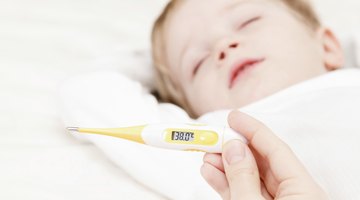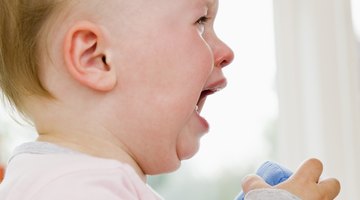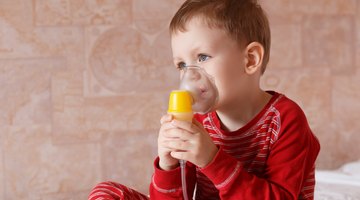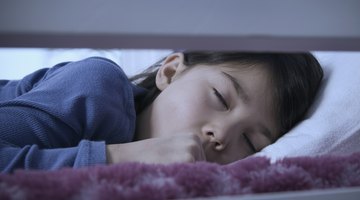Heavy Congestion & Fever in a Toddler
Fever and heavy congestion in a toddler are usually caused by a viral infection. She might have a fever, accompanied by a running nose. If your toddler develops a fever higher than 102 degrees F, contact her pediatrician. This might be the sign of a more serious infection. There are also steps you can take to ease heavy congestion and a fever in your toddler.
Humidifier
A congested toddler has difficulty breathing in a dry room. A humidifier will moisten the air, making it easier for your child to breathe. Position the humidifier away from bedding and clothing. This prevents items from getting damp and growing mold. Also, clean the water daily to prevent bacteria and mold problems in the air.
Bathing

High Fever With Chills in Toddlers
Learn More
Give your toddler a lukewarm soak to ease his fever. Allow him to play in the water about five to 10 minutes. However, if he starts to shiver during the bath, go ahead and end it. Muscle shaking generates heat, making your toddler’s fever rise. Dress your toddler in light pajamas and only use a light blanket for sleeping. The temperature of your house should be comfortable, not too hot or cold.
Fluids
A toddler with congestion and a fever is at risk for dehydration, according to MayoClinic.com. Encourage your child to drink fluids, such as water, diluted juice and broth. Talk with her doctor about giving an electrolyte replacement solution to prevent dehydration. If your child stops drinking or eating, contact her doctor right away.
Bed Positioning
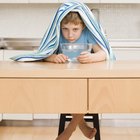
How to Clear a Child's Chest Cold
Learn More
Nighttime is difficult for a congested and feverish toddler. Ease her symptoms by placing a couple pillows under the head of the bed. This helps the mucus drain easier. If your toddler isn’t sleeping in a bed yet, discuss this with her doctor. She will advise if elevating your child’s head while sleeping is the best approach.
Medicine
Cold medicine isn’t recommended for children under the age of 2, according to MayoClinic.com. If your child has a fever of 102 degrees or higher, your doctor might recommend a fever reducer, like acetaminophen. However, don’t administer a fever reducer without consulting your doctor first. Homeopathic remedies should also be discussed with your doctor. These remedies aren’t reviewed by the Food and Drug Administration.


